
Latest Coronavirus Disease COVID 19 News and Research
Among those disrupted by COVID-19: The nation’s newest doctors
July 1 is a big day in medical education. It's traditionally the day newly minted doctors start their first year of residency. But this year is different. Getting from here to there — from medical school to residency training sites — has been complicated by the coronavirus.
Telehealth plays an important role in preventing the spread of COVID-19
Rural hospitals are more likely than urban facilities to have access to telehealth, a once-underused service that now is playing a key role in treating coronavirus patients, according to research by two health administration professors in Florida Atlantic University's College of Business.
Hollowed-out public health system faces more cuts amid virus
The U.S. public health system has been starved for decades and lacks the resources to confront the worst health crisis in a century.
Phosphorylation of SARS-CoV-2 N protein affects its function
Now, a new study by researchers at the University of California San Francisco and published on the preprint server bioRxiv* in June 2020 shows the effect of phosphorylation on the state and function of the N protein.
Kansans depend on local authorities for reliable COVID-19 information, shows survey
New information emerges about the novel coronavirus on a daily basis, sometimes confirming, other times contradicting what we thought we knew the day before.
BMI should be assessed in management of COVID-19 patients
A new study published on the preprint server medRxiv* in June 2020 reports that obesity is a risk factor of composite poor outcome of COVID-19 disease. On the other hand, COVID-19 patients with 'composite poor outcome' have higher BMI. Therefore, BMI should be assessed in the management of COVID-19 patients, and special attention should be given to patients with obesity.
SARS-CoV-2 circulating in Brazil back in November 2019
The finding, published on the preprint server medRxiv in June 2020, shows that it has been causing infection in Brazil long before the first case was reported in the Americas, North and South, in January 2020, and certainly before the first case in this Brazilian region.
Silk useful as face mask and PPE in COVID-19
As many people are resorting to face coverings improvised from common fabrics, researchers from the University of Cincinnati looked to determine what fabrics were the most effective. The team examined the hydrophobicity of fabrics (silk, cotton, polyester), as measured by their resistance to the penetration of small and aerosolized water droplets, an important transmission avenue for the virus causing COVID-19.
Oral hygiene and severity of COVID-19 – the connection
Their study titled, “Could there be a link between oral hygiene and the severity of SARS-CoV-2 infections?” was published in the latest issue of the journal British Dental Journal.
Herd immunity in the U.S. unlikely
The race to develop an effective vaccine against the severe acute respiratory syndrome coronavirus 2 (SARS-CoV-2) is on, with many vaccine candidates entering the human trial phase. When a vaccine is developed and introduced into the population at scale, it triggers herd immunity, with many people immune to the infectious disease.
New swine flu strain with pandemic potential found in China
As the world grapples with a novel coronavirus pandemic, a new strain of swine flu that can trigger a pandemic has been reported.
Striking CryoEM image of SARS-CoV-2
A new study by researchers from the UK and Germany and published on the preprint server bioRxiv in June 2020 reports the results of a detailed study of the S protein on the intact virus, using cryoelectron microscopy (cryoEM) and tomography. This could help understand the conformation of the S protein on the virion and how it interacts with neutralizing antibodies.
New approach holds incredible potential for developing new therapeutics
Nearly every drug that is, or has ever been, used was derived from nature -- harnessing compounds created by organisms over eons to fight diseases. But decades ago, biochemists postulated that it might be possible to design a new drug from scratch by linking up amino acids in precise ways.
Large-scale analysis of COVID-19 risk among different groups of UK hospital staff
Staff who shared a household with an infected person were at the greatest risk of infection, and those working in COVID-19-facing areas were also at an increased risk. Other groups that were identified as a high risk included Black and Asian individuals, porters, and cleaners.
Specific SARS-CoV-2 genetic elements found in different insect species
In a recent bioRxiv paper, researchers from Norway and the US demonstrate the presence of a highly conserved, mobile genetic element (thus far with unknown function) in genomes of the severe acute respiratory syndrome coronavirus 2 (SARS-CoV-2) and a large number of insects – opening the door for hitherto unexplored treatment opportunities.
Potential new biomarker could improve COVID-19 diagnosis
Researchers at Montpellier University Hospital have discovered that an interferon-inducible receptor expressed on monocytes could be a useful biomarker for the rapid triaging of patients suspected to have severe acute respiratory syndrome coronavirus 2 (SARS-CoV-2).
Ghana's efforts to eliminate malaria at risk as economy improves
Ghana's efforts to eliminate malaria could be in jeopardy as its improved economy results in reduced external funding for fighting malaria, a study suggests.
SARS-CoV-2 can infect heart cells in a lab dish, study shows
A new study shows that SARS-CoV-2, the virus that causes COVID-19 (coronavirus), can infect heart cells in a lab dish, indicating it may be possible for heart cells in COVID-19 patients to be directly infected by the virus.
The biggest database for automated gait analysis
The database comprises information on the so-called "ground reaction force" which is the force between the foot and the ground that is generated during movement. It is an important standard parameter used in clinical practice and in research.
COVID-19 patients' blood can help identify people at greatest risk of severe illness
Doctors can examine COVID-19 patients' blood to identify those at greatest risk of severe illness and to pinpoint those most likely to need a ventilator, new research from the University of Virginia School of Medicine suggests.
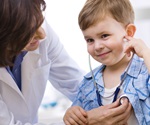
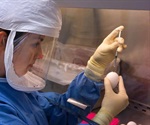

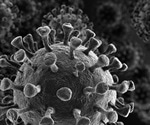
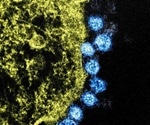

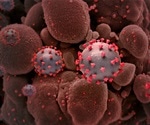

_0c37b19224e14c0d8e604e6017b58a53-150x125.jpg)


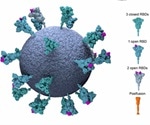



_36b1e52c2a0344b48878c3293e2c44dd-150x125.jpg)
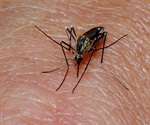
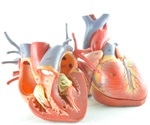
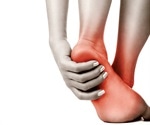






















.jpg)









No hay comentarios:
Publicar un comentario